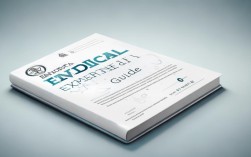在英语中,“考试差”可以用多种方式表达,具体取决于语境和程度,以下是常见的英文表达及其适用场景,帮助您准确描述考试成绩不理想的情况。

直接表达“考试差”
-
Fail the exam
- 最直接的表达,指“考试不及格”。
- 例句:I failed the math exam last semester.(我上学期数学考试没及格。)
-
Do poorly on the exam
- 表示“考得不好”,但未必不及格。
- 例句:She did poorly on the history test.(她历史考得很差。)
-
Get a low score/mark

- 强调分数低,适用于具体分数描述。
- 例句:He got a low score on the English test.(他英语考试分数很低。)
委婉表达“考试不理想”
-
Not do well on the exam
- 较为中性的表达,适合正式场合。
- 例句:I didn’t do well on the final exam.(我期末考试没考好。)
-
Bomb the exam(俚语)
- 表示“考砸了”,语气较强烈。
- 例句:I totally bombed the physics exam!(我物理考试彻底考砸了!)
-
Flunk the exam(非正式)

- 与“fail”同义,但更口语化。
- 例句:If I flunk this test, I’ll have to retake the course.(如果这次考试没过,我就得重修这门课。)
描述考试表现差的短语
-
Underperform in the exam
- 指“表现低于预期”,适合学术或职场语境。
- 例句:Many students underperformed in the midterm exam.(许多学生期中考试表现不佳。)
-
Struggle with the exam
- 强调“考试困难,难以应对”。
- 例句:He struggled with the chemistry exam.(他化学考试考得很吃力。)
相关词汇扩展
- Retake/resit the exam(补考)
- 例句:I need to retake the exam next month.(我下个月需要补考。)
- Disappointing results(令人失望的成绩)
- 例句:The exam results were disappointing.(考试成绩令人失望。)
文化差异小贴士
- 在英美国家,直接说“fail”可能显得过于严厉,委婉表达(如“didn’t do well”)更常见。
- 学术环境中,“underperform”或“achieve below expectations”是更专业的表达方式。
根据不同场景选择合适的表达:

- 正式场合:underperform, not meet expectations
- 日常对话:fail, bomb, do poorly
- 委婉表达:didn’t do well, struggle with
掌握这些表达后,无论是写作还是口语,都能更准确地描述考试表现。
引用说明:本文参考了剑桥词典、柯林斯词典及英语母语者的常用表达。



